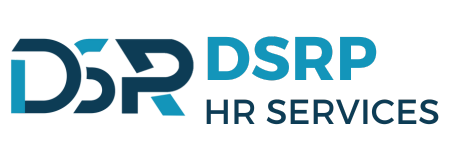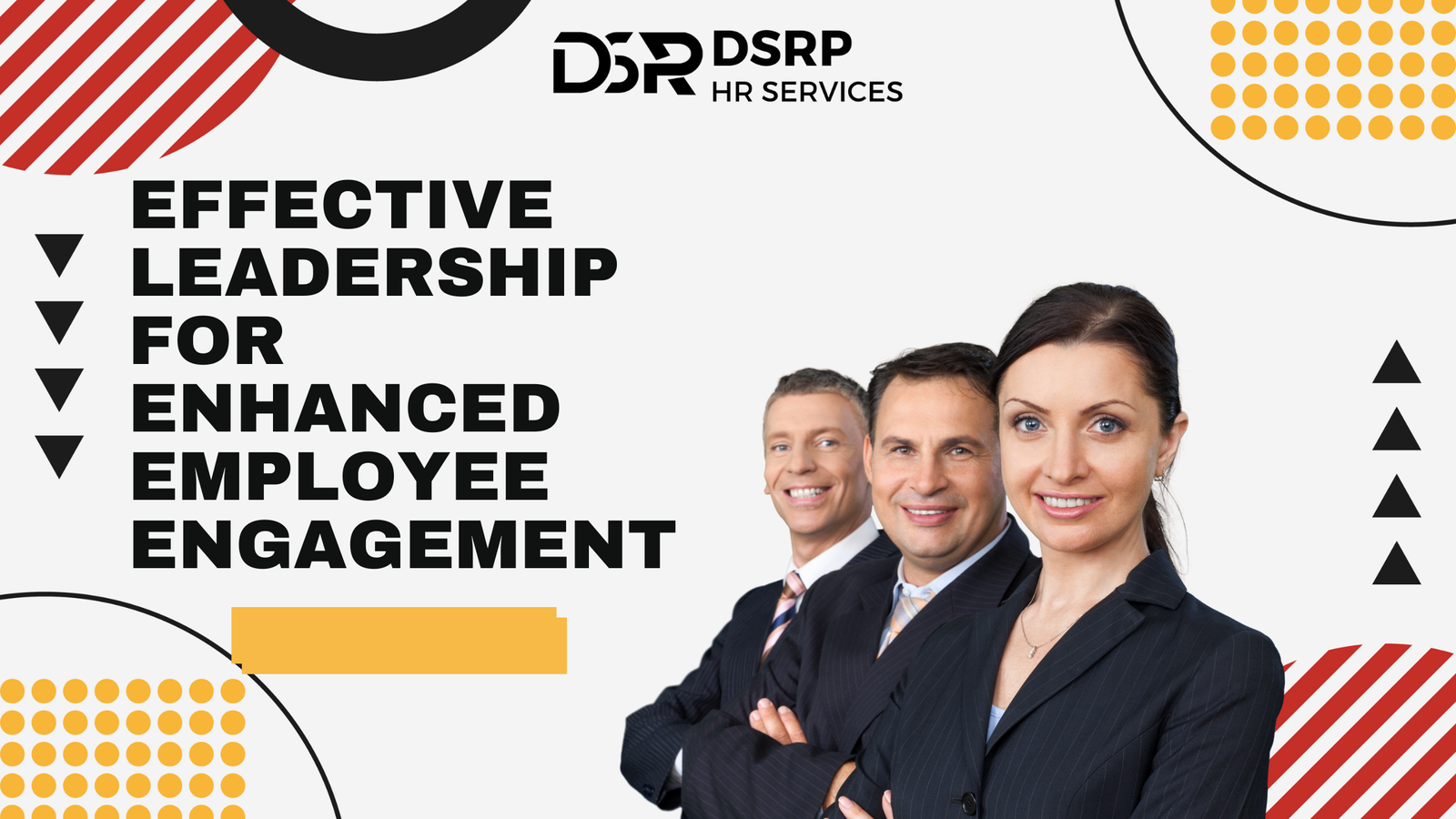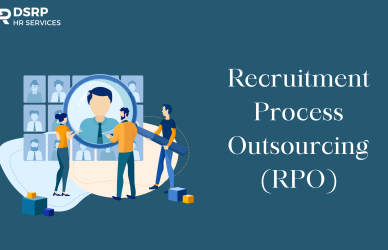In today’s dynamic business environment, effective leadership is more crucial than ever. At DSRP HR Services, we understand that strong leadership not only drives organizational success but also plays a pivotal role in enhancing employee engagement. This blog explores the critical connection between effective leadership and employee engagement, delves into the qualities of effective leaders, and offers strategies for fostering leadership that inspires and motivates the workforce.
The Connection Between Leadership and Employee Engagement
Employee engagement refers to the emotional commitment employees have toward their organization and its goals. Engaged employees are more productive, innovative, and loyal. Leadership significantly influences employee engagement by shaping the workplace culture, setting the tone for communication, and fostering an environment of trust and collaboration.
1. Vision and Direction
Effective leaders provide a clear vision and direction for the organization. When employees understand the company’s goals and their role in achieving them, they are more likely to be engaged and motivated. A compelling vision helps employees see the bigger picture and feel connected to the organization’s mission.
2. Recognition and Appreciation
Leaders who recognize and appreciate their employees’ efforts foster a positive work environment. Recognition, whether through formal programs or informal gestures, boosts morale and encourages employees to go above and beyond in their roles. Feeling valued and appreciated is a significant driver of engagement.
3. Empowerment and Autonomy
Empowering employees by giving them autonomy in their work fosters a sense of ownership and responsibility. Effective leaders trust their team members to make decisions and contribute their unique perspectives. This empowerment leads to higher job satisfaction and engagement.
4. Open Communication
Transparent and open communication is essential for building trust between leaders and employees. Leaders who actively listen to their team, provide regular feedback, and keep them informed about organizational changes create an environment where employees feel heard and valued.
Qualities of Effective Leaders
To foster employee engagement, leaders must embody certain qualities that inspire and motivate their teams. Here are some key characteristics of effective leaders:
1. Emotional Intelligence
Emotional intelligence (EI) is the ability to understand and manage one’s own emotions and the emotions of others. Leaders with high EI are empathetic, self-aware, and skilled at building strong interpersonal relationships. They can navigate complex social dynamics and foster a supportive work environment.
2. Authenticity
Authentic leaders are genuine and transparent in their actions and communications. They lead with integrity, consistently aligning their words and deeds. Authenticity builds trust and credibility, which are essential for engaging employees.
3. Adaptability
In a rapidly changing business landscape, adaptability is crucial. Effective leaders are open to new ideas, embrace change, and guide their teams through uncertainty with confidence. Their ability to pivot and respond to challenges inspires employees to remain resilient and engaged.
4. Inspirational
Inspirational leaders have a passion for their work and a vision that excites and motivates their teams. They articulate a compelling narrative that connects employees to the organization’s mission and values. Their enthusiasm is contagious, fostering a positive and engaged workforce.
5. Accountability
Effective leaders hold themselves and their team accountable for their actions and performance. They set clear expectations, provide constructive feedback, and address issues promptly. This accountability creates a culture of responsibility and high performance.
Strategies for Fostering Effective Leadership
To cultivate effective leadership that enhances employee engagement, organizations must invest in leadership development and create a supportive environment. Here are some strategies to achieve this:
1. Leadership Training and Development
Invest in comprehensive leadership training programs that focus on developing key skills such as emotional intelligence, communication, and conflict resolution. Offer workshops, coaching, and mentoring to help leaders continuously improve and adapt to new challenges.
2. Encourage Continuous Learning
Promote a culture of continuous learning where leaders are encouraged to seek new knowledge and skills. Provide access to resources such as online courses, industry conferences, and professional networks. Continuous learning keeps leaders informed and adaptable.
3. Foster a Collaborative Culture
Create a collaborative work environment where leaders and employees work together towards common goals. Encourage cross-functional teams, open dialogue, and knowledge sharing. Collaboration strengthens relationships and enhances engagement.
4. Provide Opportunities for Growth
Offer career development opportunities that allow employees to grow and advance within the organization. Effective leaders support their team’s professional growth by providing challenging assignments, stretch goals, and pathways for advancement.
5. Implement Feedback Mechanisms
Establish regular feedback mechanisms, such as surveys and one-on-one meetings, to gather input from employees. Use this feedback to identify areas for improvement and address any concerns. Leaders who actively seek and act on feedback demonstrate their commitment to employee well-being and engagement.
6. Lead by Example
Leaders should model the behavior they expect from their employees. Demonstrating a strong work ethic, commitment to the organization’s values, and a positive attitude sets the tone for the entire team. Leading by example fosters respect and trust.
Conclusion
Effective leadership is the cornerstone of enhanced employee engagement. By embodying qualities such as emotional intelligence, authenticity, adaptability, inspiration, and accountability, leaders can create a work environment where employees feel valued, empowered, and connected to the organization’s mission. At DSRP HR Services, we are committed to helping organizations develop strong leaders who can drive engagement and achieve lasting success.
Contact us today to learn more about our leadership development programs and how we can support your organization in fostering effective leadership for enhanced employee engagement.
Email Id.: info@dsrpjobs.com
Contact No.: 8080803153





